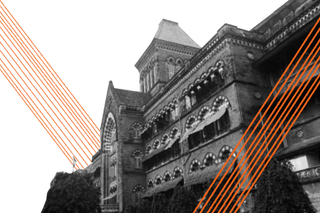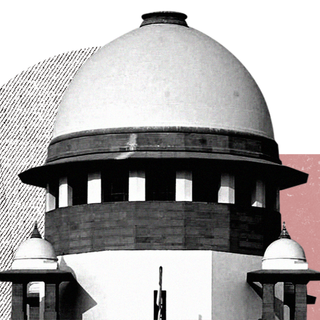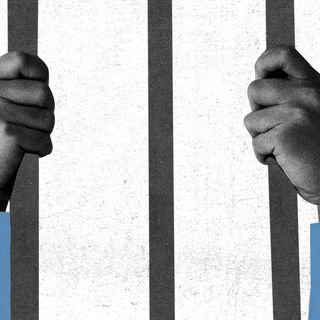
Can’t Dismiss Rape Survivor’s Testimony Simply Due to Lack of Medical Evidence: Mumbai Court
The court said that a survivor, already traumatized by the assault, shouldn’t suffer further just because she wasn’t examined by a doctor.

This week, the Sessions Court in Mumbai ruled that a court can’t disregard the statement of a sexual assault survivor simply because it cannot be backed by medical evidence.
Justice Sanjashree Gharat, who passed the order, was hearing a matter where a 19-year-old woman, who had come to Mumbai for a job, was raped by a 28-year-old cook in course of her employment in 2017. Then, he “threatened [to] cause injury to her” if she “disclosed the said incident to anybody.”
The survivor still went to her employer and explained the trauma she underwent — only to be assured that “she [the employer] will report the matter to the police and… terminate the accused from the service” before eventually offering to just send her to her native place. This led to a delay in lodging an FIR. Moreover, the medical officer she was subsequently referred to didn’t carry out an examination of her genitals.
According to Justice Gharat, the survivor shouldn’t have to suffer the consequences of the medical officer’s inaction. The court noted the survivor was able to explain the delay in filing the FIR and there was nothing to suggest that she was lying. The statements of witnesses, too, corresponded with her version of events. As such, the judgment stated that the “testimony of the survivor can’t be disbelieved for want of medical evidence.”
Related on The Swaddle:
SC Issues Guidelines for Courts to Consider Influence of Caste, Disability in Sexual Abuse Cases
This is in line with a 2017 judgment by the Delhi High Court, which noted it may not even be possible to obtain medical evidence for every form of sexual assault after the definition of “rape” was expanded through the 2013 amendment. “In most of such cases, there is no medical evidence. Oral testimony of the victim is sufficient. Just because some false cases are filed, we cannot deny justice to real victims,” Justices Gita Mittal and C. Hari Shankar stated.
Just last year, the Kerala High Court had gone a step ahead and even expanded the scope of “rape” under Indian laws to include even non-penetrative acts that provide sexual gratification. The question before the court was whether the expression “cause penetration into the vagina, urethra, anus or any part of [the] body of such woman” also includes technically non-penetrable body parts of a person that can be “manipulated to simulate a penetration and have the effect/sensation of an orifice.” It ruled that the offense of rape was indeed committed since the accused “had penetrative sexual act between the thighs of the victim held together; an act of manipulation of the body of the victim to obtain sexual gratification, which culminated in ejaculation.”
However, in cases like that, for instance, procuring medical evidence might not necessarily be possible — just like the Delhi High Court had observed. And so, citing the lack of medical evidence as the only reason to throw out a case, could deny justice to survivors of sexual assault.
“Time and again in rape cases we try to bring the focus on medical evidence and the absence of it raises various questions about the authenticity of the case… The changed rape laws identify all the limitations, but it is all on paper. The focus continues to remain on medical evidence which may not be conclusive in sexual violence cases,” Anupriya Singh, a senior research associate with CEHAT (Centre for Enquiry into Health and Allied Themes), had written in The Leaflet in 2020.
Related on The Swaddle:
Singh recommended that “The police, prosecutors, as well as the judiciary, must understand the limitation of medical evidence… It is time we take a second look at medical evidence and broaden the discussion on it by looking at it from a different perspective.”
In that context, it is certainly heartening to see courts moving away from excessive reliance on medical evidence.
In yet another positive development this week, in an endeavor to make the collection and presentation of evidence more robust, the Supreme Court expanded the scope of vulnerable witnesses — or witnesses “who can be more easily attacked in traditional adversarial court proceedings” — to include age- and gender-neutral survivors of sexual assault, and individuals living with either mental illnesses, and speech- or hearing-related impairments.
In the present instance, Justice Gharat convicted the accused and sentenced him to 12 years of rigorous imprisonment. “The incident of rape will have [a] devastating effect on [the] psychological condition of [the] victim. Therefore, in my view, [this] sentence will meet ends of justice,” she stated.
Devrupa Rakshit is an Associate Editor at The Swaddle. She is a lawyer by education, a poet by accident, a painter by shaukh, and autistic by birth. You can find her on Instagram @devruparakshit.
Related


Definition of ‘Dowry’ Should Include Any Material Demands Made From Women: SC
